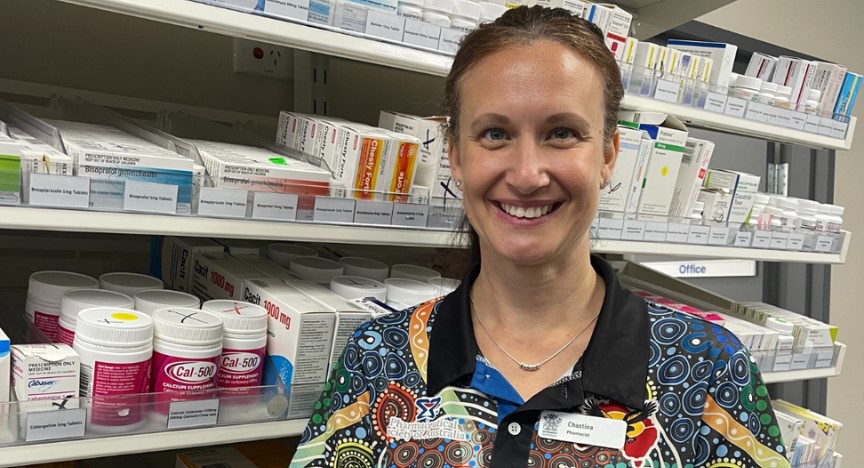
An allied health pathway for mob, by mob, is shaping the next generation of First Nations leaders across Metro South Health (MSH).
The Allied Health Deadly Career Pathway is an initiative designed to strengthen cultural leadership among Aboriginal and Torres Strait Islander allied health staff and grow the MSH First Nations workforce.
Logan and Beaudesert Health Services’ Chastina (Chas) Hack and Petina Fry will lead the initiative over the next six months as dedicated Workforce Development Officers.
The proud First Nations women said they looked forward to using their own experiences to foster leadership and career growth for their mob in MSH.
“The Allied Health Deadly Career Pathway helps First Nations people move from school through university to entry-level roles and leadership positions in allied health,” they explained.
Chas and Petina said they would work closely with psychology cadet Brooklyn Whitmore to progress the pathway that, importantly, was designed in partnership with the Aboriginal and Torres Strait Islander Directorate, and the Office of the Executive Director of Allied Health.
Petina, an experienced allied health professional, began her career as a physiotherapy cadet at the Mater Hospital and has spent over a decade at Beaudesert Hospital.
She said she had seen firsthand the challenges First Nations people faced in healthcare and was committed to increasing representation in allied health.
“I’ve been fortunate to have opportunities, but I know that’s not the case for everyone,” she said. “I want to see more of our mob working in allied health supporting our communities and having a strong voice in First Nations health.”
Chas said she was inspired to pursue a career in healthcare after a positive experience with a pharmacist in high school.
That moment sparked her journey into pharmacy and a deeper understanding of the barriers First Nations professionals faced in the health system.
“Investing in the First Nations workforce shows that Aboriginal and Torres Strait Islander people belong in our health services. As our workforce grows, so do the supportive networks that help individuals reach their full potential.”
A key focus for Chas and Petina is building strong connections and cultural support for First Nations health professionals.
“When we work together, there’s no limit to what we can achieve,” Petina said. “Cultural support and protected career pathways are essential for long-term success.”
Collectively, the team said they were proud to contribute to culturally safe and effective healthcare for Aboriginal and Torres Strait Islander communities.
“We know from research and from what our mob tells us that when mob are treated by mob, Aboriginal and Torres Strait Islander health outcomes improve,” Petina said.
“When we invest in First Nations leadership in health, we send a clear message to our communities that First Nations voices are shaping the future of healthcare.”
With the development of the Allied Health Deadly Career Pathway and the dedication of the new team, the future looks bright for First Nations representation in allied health at Metro South.